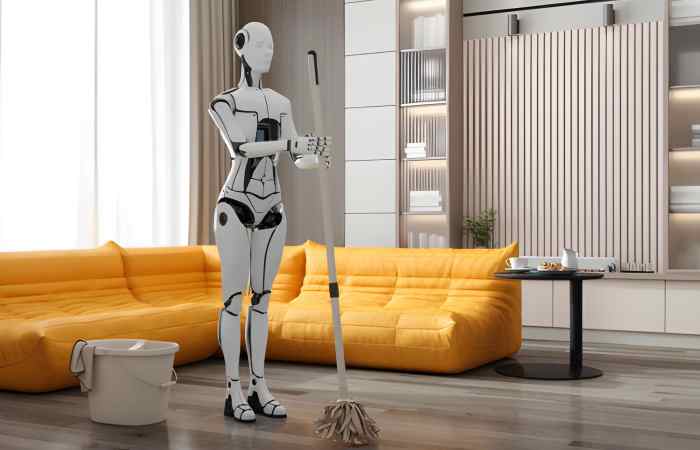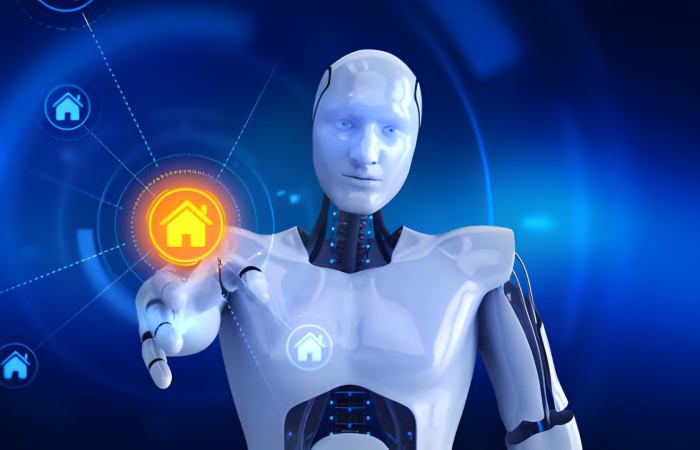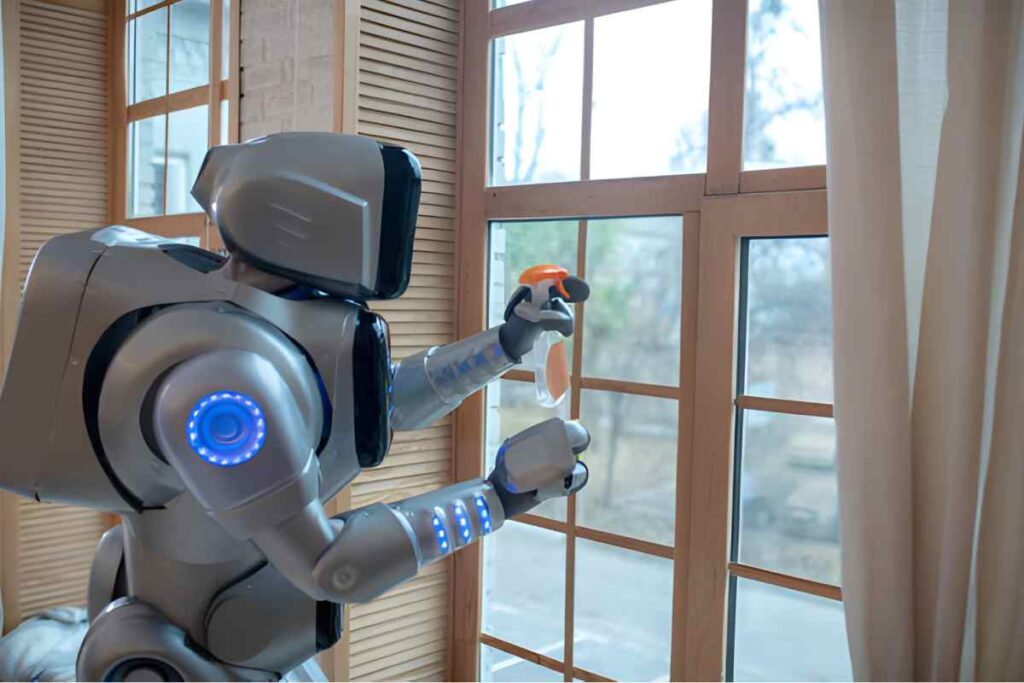Artificial intelligence (AI) is changing how we manage our homes, offering innovative solutions that save time, energy, and effort. Particularly in busy cities like New York, AI-powered tools are taking convenience to a new level, making home management more intelligent and efficient.
AI in Everyday Home Management
1. Smart Cleaning Solutions with Advanced Features
AI-powered cleaning robots have gone beyond simple vacuuming. They can map floors, identify high-traffic areas, and even differentiate between surface types, such as carpets and hardwood floors. Some models can be programmed to bypass specific areas or perform scheduled cleaning, ensuring a clean home with minimal effort.
2. Voice-Activated Personal Assistants
Devices like Alexa, Google Home, and Siri have become integral to the smart home. These AI-powered voice assistants help with tasks like setting reminders, controlling lighting and appliances, and providing instant answers to questions. They can even integrate with other smart home systems to create seamless automations, such as turning on the coffee maker when your morning alarm rings.
3. AI-Enabled Climate Control Systems
Smart thermostats like Nest and Ecobee use artificial intelligence to understand your temperature preferences and create energy-efficient schedules. Similarly, AI-powered air purifiers monitor indoor air quality in real time and adjust their settings to improve it, creating a healthier and more comfortable home.
4. AI for Home Security and Monitoring
Artificial intelligence has significantly improved home security. Smart cameras now use facial recognition to distinguish between family members, pets, and strangers. AI-powered motion sensors instantly alert you to unusual activity, and some systems even integrate with law enforcement for additional protection.
5. AI in Specialized Household Services
AI is also being used to improve the quality of specialized services. For example, upholstery cleaning companies in New York City are implementing AI to assess fabric types and conditions, offering precise cleaning solutions that ensure optimal care and longevity.
6. AI for Smart Kitchen Management
AI-powered kitchen appliances, such as smart refrigerators, can track your food record, propose recipes based on available ingredients, and even inform you when you’re running low, reducing food waste and making meal planning easier.
7. AI-Integrated Home Entertainment Systems
AI enhances entertainment by creating personalized playlists, recommending pictures or shows based on viewing habits, and optimizing audiovisual settings for a fully immersive experience.
8. AI-Driven Home Maintenance Assistants
Artificial intelligence systems can monitor the health of home appliances such as dishwashers or HVAC systems and alert homeowners when repairs or maintenance are needed, ensuring smooth and efficient operation.
Benefits of AI in Household Services

1. Time-Saving and Automation
AI automates repetitive tasks like vacuuming, scheduling maintenance, or managing shopping lists, allowing homeowners to focus on more critical aspects of their lives.
2. Energy Efficiency and Cost Savings
Artificial intelligence systems optimize energy consumption by controlling lighting, appliances, and HVAC systems based on usage patterns, helping to reduce utility bills.
3. Increased Precision in Everyday Tasks
AI-powered devices provide greater precision in cleaning, washing, and care tasks. For example, AI-powered washing machines can detect fabric type and adjust water levels, detergent consumption, and wash cycle parameters accordingly.
4. Personalized Experiences
Artificial intelligence learns from your daily habits to offer personalized solutions. For example, an intelligent lighting system can dim the lights at night or adjust brightness based on the natural light in the room.
5. Convenience and Accessibility
AI integrates multiple home systems into a single platform, allowing homeowners to control everything from security to cleaning using a smartphone app or voice commands.
Challenges and Opportunities in AI-Powered Homes

1. Privacy and Security Concerns
Artificial intelligence systems collect significant amounts of personal data, raising concerns about potential data leaks and misuse. Developers need to implement robust encryption and privacy features to mitigate these risks.
2. Affordability and Accessibility
While artificial intelligence (AI)-powered devices offer tremendous value, their initial costs can be prohibitive. More affordable and scalable solutions are needed to make these technologies accessible to every household.
3. Adapting to Evolving Technologies
As artificial intelligence evolves rapidly, keeping up with updates and new features can be challenging. Homeowners must ensure their systems are compatible with the latest technologies.
4. Expanding the Scope of AI in Homes
The future holds exciting possibilities, such as robots capable of multitasking: cooking, organizing, and even repairing. Artificial intelligence can also provide real-time diagnostics and troubleshooting for household appliances, reducing the need for professional intervention.
5. Over-Reliance on AI for Daily Functions
Growing reliance on AI for basic tasks can hinder the expansion of critical thinking and problem-solving skills in humans. Furthermore, in the event of a system failure or malfunction, the lack of manual alternatives can disrupt everyday life. Finding a balance between the use of AI and the availability of backup human functions.
6. Ensuring Ethical AI Practices
Artificial intelligence systems in homes must be developed with ethical standards in mind. For example, voice assistants should not record conversations unnecessarily, and smart cameras should have clear data use policies. Companies must adhere to ethical standards to maintain public trust in these technologies.
7. Tackling Interoperability Issues
Not all AI devices and systems work flawlessly. For example, one brand’s smart thermostat may not integrate with another brand’s smart home hub. Improving interaction between AI systems is crucial to creating a cohesive smart home ecosystem.
By addressing these challenges, AI-powered homes will be able to fully realize their potential, providing users around the world with a safe, efficient, and transformative experience.
Conclusion
Artificial intelligence is altering how we manage our homes, making household services more efficient, personalized, and expedient. AI is becoming integral to modern life, from innovative cleaning solutions to advanced security systems and specialized services like upholstery cleaning in New York City. As technology advances, the future of AI-powered homes opens up even more possibilities, transforming everyday life into a convenient and straightforward process.

